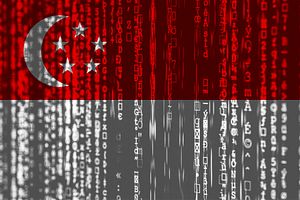Last week, Singapore’s Minister for Law and Home Affairs K. Shanmugam delivered a key address about the threat of foreign interference to the Southeast Asian country. While the speech was just the latest in a series of statements that Shanmugam has issued on aspects of this issue, it nonetheless spotlighted how Singapore, a key actor in the Asia-Pacific, is managing the foreign interference challenge that has been receiving more international attention over the past few years.
As I have noted before in these pages, the issue of foreign interference has been receiving greater attention over the past few years, with cases emerging such as alleged Russian interference in U.S. elections in 2016 and suspected Chinese influence operations in several countries in the Asia-Pacific. Singapore has been among the countries in the wider Asia-Pacific region that has been battling this challenge. While there have been various examples of this, a notable case in point that made the headlines was back in 2017, when Singapore expelled a Chinese-American academic who was alleged to be an agent of foreign influence.
In response, the Singapore government has been mulling a series of measures to respond to aspects of this challenge. This includes the enactment of the Protection from Online Falsehoods and Manipulation Act (POFMA) that deals with the problem of fake news, as well other moves such as being more explicit about restrictions on foreign participation in local protests. These moves have stimulated debate within wider conversations in and about the Southeast Asian state, including the appropriate balance that needs to be struck between security and freedom, and the role of government and other actors therein.
Last week, Singapore’s approach to foreign interference was in the spotlight again with an address delivered by Minister for Home Affairs and Law K Shanmugam. Shanmugam was speaking at a conference on foreign interference organized by the S Rajaratnam School of international Studies, a Singapore think tank.
In his remarks delivered on September 25, building off of previous comments on the subject, Shanmugam argued that modern technologies had turbo-charged the age-old threat of foreign interference, leading to the increasing use of hostile information campaigns (HICs) and other non-kinetic military measures to stoke protests, deepen divisions, increase hostility, and sow distrust in institutions. Countering this challenge requires government involvement given the threat to sovereignty and national security, and he suggested some ways that this could be done, including new legislation be enacted to deal with HICs more specifically and considering restrictions on foreign participation in certain organizations.
Shanmugam’s remarks reinforce the fact that the Singapore government remains committed to addressing the foreign interference challenge, and it suggests that we could see further measures enacted in the coming months and years. It also indicates that there may be greater scrutiny on organizations deemed to have suspicious foreign links or sources of foreign financing, raising questions about select media and advocacy groups.
How exactly Singapore navigates this challenge will be important to watch. Domestically, this conversation will be evolving within a broader domestic political environment where the country nears its next election and is gradually transitioning away from the current Prime Minister Lee Hsien Loong and a new generation of leaders. And internationally, in an environment where there is greater scrutiny on the foreign interference threat, growing major power competition, and the role of technology in international affairs, the responses of individual countries such as Singapore will be analyzed to assess how governments and societies are managing a key challenge.

































